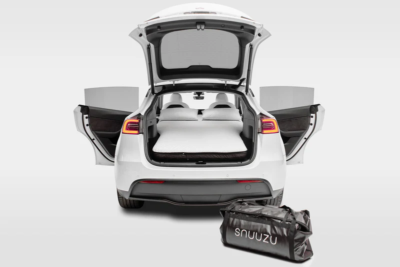What Is the Veneers Price?

A popular question about dental problems is, “how much do veneers cost?” Dental veneers are a cosmetic alternative to having bright and attractive teeth. Get your dental veneers from www.dentakay.com if you are less confident and would love to change your smile and entire look. In this article, we review dental veneers and provide the cost of veneers and possible ways to finance your veneer installation procedure. Visit to get your free consultation.
What are veneers?
Dental veneers are becoming a more commonly heard aesthetic treatment. Known as a “smile makeover” to improve a person’s teeth. A veneer is a thin wafer-like shell covering the front of a tooth. A veneer usually has the same size, shape, and color as your natural teeth. It permanently bonds to your natural tooth and covers broken, irregularly shaped, and damaged.
There are different options when fixing veneers: partial veneer covering half of the tooth and full veneer covering the entire front of your teeth. You cannot fix veneers if you have any oral condition like gum disease or cavities. You would have to treat them before you commence installation.
Types of veneers
The type of veneers you are fixing will determine the veneers’ cost. That is why it is essential to seek initial consultation at the dentist’s office.
The two major types of veneers are porcelain and composite veneers.
Porcelain veneers
Porcelain veneers are the most resilient type of veneer. They are biocompatible and do not affect the mouth’s soft tissues. They are also the perfect choice if you want to improve your smile, as they match the natural color of the teeth. However, they are an expensive option as porcelain veneers cost from around $925 to $2500 per tooth. The price of porcelain veneers cost an average of $1500. Because veneers are considered cosmetic procedures, insurance does not cover them. However, insurance may cover some of it if you change a damaged tooth.
Composite veneers
These types of veneers are the second major type of veneers. They are made from composite veneers, combining organic and inorganic materials. The natural tooth-colored paste is bonded to the damaged or stained teeth to give a better appearance. Composite veneers are a cheaper alternative than porcelain veneers. However, depending on the ceramist’s skill, they are more prone to stains and cracks. Composite veneers can cost as low as $250 per tooth and as high as $1450 per tooth.
Other veneer types are:
Lumineers
Lumineers are a type of translucent veneers that require less preparation and dental work. Made of laminate, they are ultra-thin and are also known as “no-prep” veneers. They work for damaged and stained teeth but will not do much for severely stained teeth because of their translucence.
Removable veneers (temporary veneers)
Also known as “snap-on” or “clip-on” veneers, these are a custom-fit and reversible alternative to traditional veneers. They are easy to replace and do not require the help of a dental professional. However, they are not advisable if you have gum diseases or cavities.

Factors that affect dental veneer prices
Dental veneers cost depends on several factors, and some of them include:
- Type of veneer: This primary factor determines the price of getting a veneer installation. Porcelain is more expensive than composite veneers.
- Size: The shape of your tooth and the number of materials you will use also affect the pricing. More materials mean more expensive.
- Location: the location of the dental practice also affects the pricing. Prices differ from state to state, town to town, and country to country, so your location will affect how much your veneers will cost.
- Complexity: the skills of the dentist and the complexity of the equipment needed to do the installation also affects pricing.
What Is the Veneers Price?
Veneers prices vary depending on the type you choose, the location and skill of your dentist, and the number of veneers you decide to get. The primary thing to note is that dental veneer cost depends on the type used. Traditional veneers cost between $1000 and $1500 per tooth, with porcelain being the most expensive. Composite and lumineers (no-prep) veneers are a bit cheaper, though. They cost anywhere from $250 to $2,000 per tooth. They include the following:
Porcelain veneers cost from $925 to $2500 (per tooth)
Composite veneers: $600 to $1500
Lumineers: $800 to $2000
Removable veneers: $470 to $600
The cost for veneers usually covers:
- Sharpening of the enamel for proper bonding of porcelain veneers
- The mold or impression of the prepared tooth structure
- Custom-made veneer (made in the laboratory)
Financing options for veneers
Not many persons have $2000 to bring out for veneers, especially if they want to install more than one. Therefore, there are a few ways to finance your veneer installation procedure.
Payment plans
Most dental practices have the option to pay via payment plan, especially as insurance does not cover veneers. Some cosmetic dentists may allow patients to pay for their veneers over a few months.
Discount dental plans
Most discount dental plans offer coverage for a portion of the cost since insurance does not cover dental veneers. You do not have to pay for all dental treatments; you only pay a one-time annual fee covering just the dental treatments.
Payment and discount dental savings plans are great alternatives to saving money on veneers.
Bottom line
Though their cost is a little astronomical, veneers are a worthwhile investment as they help improve your smile and your overall look. They are also durable, sometimes lasting up to 10 years, based on their types. Therefore, choosing the right dentist and veneer type is possible, making all the difference in your dental veneer installation.
Alexia is the author at Research Snipers covering all technology news including Google, Apple, Android, Xiaomi, Huawei, Samsung News, and More.












